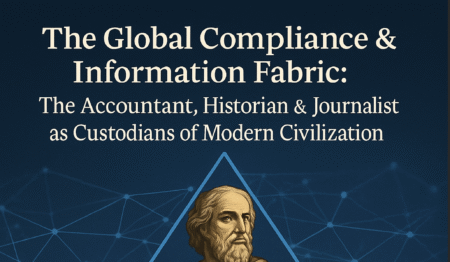The Day I Nearly Got Barbecued
I still vividly remember my first lecture in the Executive MBA program.
In front of me sat 200 seasoned professionals — military officers, engineers, doctors, lawyers, and senior industry practitioners.
But what made it even more intimidating was this:
a few of those students were nearly my father’s age — and some carried the same stature, wisdom, and presence I had grown up respecting.
Standing there, I was not just a young teacher delivering a lecture —
I was, in a way, lecturing to my uncles, elders, and seniors whose life experiences far exceeded my own.
As I stood behind the teaching dais, gripping my lecture notes, I could feel the air tighten.
I took a slow sip of water from the glass mounted on the podium, hoping it would steady my nerves.
The words of my Dean echoed ominously:
“Beware. They literally chew and barbecue every teacher who walks into that class. Hard-hitting questions. Constant cross-examinations. The last teacher survived only 5 weeks.”
For a moment, I felt the ground shifting beneath my feet.
In that instant, I realized:
Accounting isn’t just hard to learn — it’s even harder to teach.
Unlike management or marketing — filled with stories and debates — accounting is technical, rule-based, highly structured.
You can’t float through IFRS standards like you would a Seth Godin podcast or Robert Greene masterclass.
Accounting is the quantum physics of business studies — demanding attention, precision, and intellectual discipline.
“You never really understand something until you teach it.” — John Holt
The 7 Mistakes Young Accounting Teachers Make — And How Ivy League Professors Avoid Them
1️⃣ Teaching Like an Exam Coach Instead of an Educator
Trap:
Focusing on past papers, formulas, and drills.
✅ Solution (Tom Dow, NC State):
Teach financial statements as storytelling tools. Use company cases like Enron, Lehman, Apple.
2️⃣ Overloading Early Lectures With Technical Jargon
Trap:
Flooding first lectures with complex IAS/IFRS codes.
✅ Solution (Jim & Kay Stice):
Use flipped classrooms. Pre-watch micro-learning videos. Apply in class.
3️⃣ Assuming Industry Experience Equals Teaching Skill
Trap:
Believing practice equals teaching mastery.
✅ Solution (Shyam Sunder, Yale):
Use simulations. Create live experiments. Learn pedagogy science.
4️⃣ Fear of Student Questions
Trap:
Avoiding open discussion.
✅ Solution (Sugato Chakravarty, Purdue):
Use anonymous Q&A apps. Encourage interaction. Admit when unsure.
5️⃣ Neglecting Soft Skills Development
Trap:
Focusing only on numbers.
✅ Solution (Fernando Pereira, IESE):
Integrate role-play, debates, ethical dilemmas.
6️⃣ Delivering Monologues Without Personality
Trap:
Dry, monotonous delivery.✅ Solution (Jerry Kesselman, Denver):
Use humor, rhetorical questions, and passion.
7️⃣ Ignoring Student Feedback
Trap:
Resisting feedback.
✅ Solution (Ivy League Best Practice):
Anonymous feedback forms. Iterate. Improve every semester.
Why Accounting Feels Harder Than Management Subjects
Management Subjects:
- Story-driven
- Debate-friendly
- Easy to relate to daily life
- Casual listening possible
- Heavily rooted in psychology and leadership
Accounting & Finance:
- Rule-driven and technical
- Precision-focused
- Demands sustained mental labor
- Requires repetitive practice and discipline
- Highly structured, formulaic, and logical
The Triple Role of an Accounting Teacher
- IFRS, IAS, audit standards, costing models, financial analysis
2️⃣ Master the Teaching:
- Pedagogy skills
- Active learning methods
- Flipped classrooms
- Handling class dynamics
3️⃣ Master the Human Connection:
- Humor
- Empathy
- Emotional intelligence
- Building student confidence
If you can make a student love financial reporting, you have performed one of the rarest miracles in business education.”
A Little Postscript — In Case You’re Wondering
Yes — I stayed.
The first few weeks were grilling and taxing.
Every session felt like a courtroom with sharp questions and decades of experience testing every word.
But here’s the secret:
They test you because they expect their teacher to stand on the shoulders of giants.
Not to radiate fire like an angry dinosaur, but to calmly engage, explain, and absorb.
I heard many taunts:
“You may be right, Professor — but we’ve never encountered this in 15–25 years of work.”
Or:
“Agreed, Professor — but my view still stands.”
And that’s fine.
I’m not here to win debates. I’m here to teach — and to learn.
As one of my teachers at Warwick said:
“Every student teaches, every teacher learns.”
The Teacher’s True Test
The teacher must have such depth of knowledge and poise that he can confidently engage with learners across generations, professions, and hierarchies.
As I signed off that semester, I carried some of the most intense, loved, and precious memories of my teaching career.
I still do.
And I still learn — every single day.



